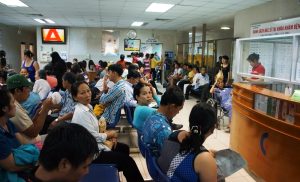The kidneys are a pair of fist-sized organs located in the lower back region. They perform many functions vital for sustaining life e.g. excreting wastes and toxins, maintaining blood pressure, calcium levels and electrolyte balance. In the setting of kidney disease and compromised renal function, certain dietary modifications could help to prevent further damage to kidneys, limit accumulation of certain toxins in the body and minimise complications.
Dietary Goals
It is important to remember that dietary changes do not treat kidney disease; it only helps to relieve stress on kidneys and slow down the progression. It is also aimed at placing patients in the best nutritional state for dialysis or potential transplant, also maintaining their quality of life. Nutritional goals for renal patient include:
- Regulating blood pressure
- Maintaining body’s salt balance
- Maintaining body’s mineral balance
- Providing adequate nutrients
What are the 6 elements of renal diet?
To achieve the goals above, a renal diet is one that is mainly low in sodium, phosphorous, and protein. Below are some elements crucial to monitor to promote a renal diet:
1. Sodium
It is an important element in regulating:
- Blood pressure
- Muscle and nerve function
- Acid-base balance of blood
We rely on our kidneys to excrete excess sodium, along with extra fluid from the body. In renal patients, sodium and fluid would accumulate in body tissues and cause:
- Oedema (swelling in the legs, hands, and face)
- High blood pressure
- Shortness of breath due to fluid build-up in lungs
- Heart failure (fluid in the bloodstream can overwork the heart, causing it to become enlarged and weak over time.)
Sodium is mainly found in dietary salt as sodium chloride.
- Avoid processed/packaged food, they are almost always rich in salt
- Read food labels, compare brands and choose those lowest in sodium
- Cook at home and skip the salt or add as little as possible; use herbs and spices instead
2. Potassium
Like sodium, potassium also helps with regulating heartbeat, and muscle functions. The excess potassium built up in body can result in:
- Muscle weakness,
- Irregular/slow heartbeat,
- Cardiac arrest/death
Avoid potassium-rich foods:
- Avocado, banana, citrus fruit, spinach
- Dried-fruit e.g. apricots, dates, raisins, prunes
- Salt-substitutes
3. Calcium
- Calcium is important in regulating heartbeat, muscle tone, and maintaining bone density.
- Patients with chronic kidney disease (CKD) do not retain enough calcium. The body reacts to maintain blood calcium levels by increasing bone resorption (breakdown of bone tissue which releases minerals into blood). This results in reduced bone density or osteoporosis, predisposing to fractures even from minor falls/injuries.
- Take calcium and Vitamin D supplements as directed by your physician.
4. Phosphorus
- Phosphorus helps to regulate calcium levels in blood.
- Renal patients do not excrete enough phosphorus. High phosphorus levels further drive bone resorption, resulting in even weaker bones. This also leads to dangerous calcium deposits in the blood vessels, lungs, eyes, and heart.
- Take phosphate binder with meals if prescribed.
- Avoid foods rich in phosphorus:
- Red meat,
- Dark-coloured sodas e.g. coke
- Low-fat dairy products e.g. yoghurt/cheese.
5. Protein
- Protein is one of the most important building blocks for our body. It is the main component of enzymes, muscle and key to our energy supply.
- Protein metabolism creates waste products, which may not be removed efficiently by damaged kidneys.
- The amount of protein to consume differs with each stage of chronic kidney disease. E.g. those undergoing dialysis, a treatment that filters and cleans the blood, have greater protein needs. It is important to consult your treating team for recommendations on the specific dietary requirement for protein.
- Protein-rich foods: meat, dairy products, fish, tofu
6. Water
- Some renal patients do not excrete enough water, while some excrete too much.
- Too much water retention results in high blood pressure and edema, while too little water results in dehydration. Consult your treating team on how much water you should drink. Make sure to consider the water content in foods as well.
Conclusion
Dietary restrictions for renal patients vary depending on the type and level of kidney damage, as well as the medical interventions in place e.g. medications or dialysis treatment. It is thus imperative to discuss food choices and with your healthcare provider to ensure meal plans are tailored for your individual needs.












